June 2022
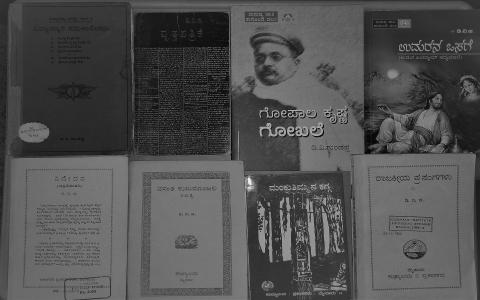
Administrative Intelligence of the Dewans
Before 1940, all those who administered the State in the position of the Dewan were loyal and competent in their own ways. As mentioned earlier, there are two levels of State governance – 1. Development (Progress) and 2. Day-to-day administration. Likewise, there are two different standards of people who run the State’s administration – 1. Statesmen and 2. Administrators.
When observed through this lens...

When they ascend the throne, England’s Kings (or Queens) take an oath in front of their subjects that they will follow, preserve, and protect the traditional methods and rules of governance. In India, the President who is in place of the King, takes this oath while swearing in — “I will, to the best of my ability, preserve, protect and defend the Constitution and the law.” (Art. 60) Thus, even the highest official of the state is subject to the...
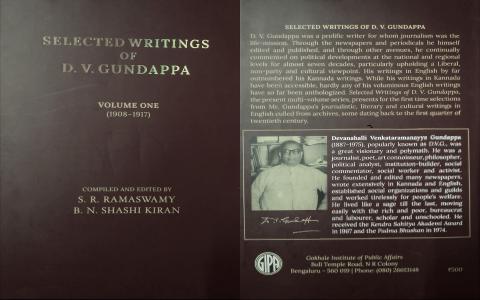
DVG was a person of the people. His spectrum of contacts extended between the extremes of traditional scholars and true-blue Marxists. Long-standing interaction with a wide variety of people had provided him a window into the recesses of social life that usually remain unnoticed. His prodigious learning in political philosophy and statecraft contributed to his insight into world affairs. All this put together enabled him to see communism for...
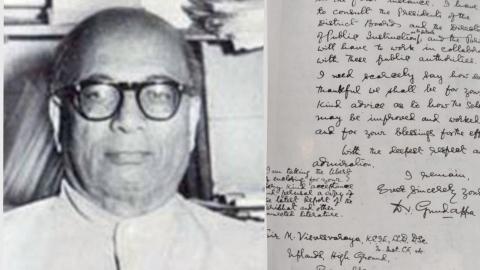
That doesn’t mean we don’t want democracy at all. The State must be dependent on the citizenry is an important principle. The policies of the State as well as the rules and regulations must be in harmony with the majority. The extent of politics necessary (or adequate) for the majority to express its true opinion should be the extent to which their rights need to be protected. Democracy beyond that may lead to extremes.
Let us take a bird’s eye...

Story 7
King Trivikramasena, for the seventh time, heaved the corpse onto his shoulder and set out. The vetāla started narrating another tale:
On the shores of the Eastern ocean lies a town named Tāmralipti. Long back, it was ruled by a king called Caṇḍasena. Once, a prince by name Sattvaśīla, who hailed from the south, came to his kingdom seeking asylum as he had been overcome by poverty. He became a dependent and served in the palace. But even...
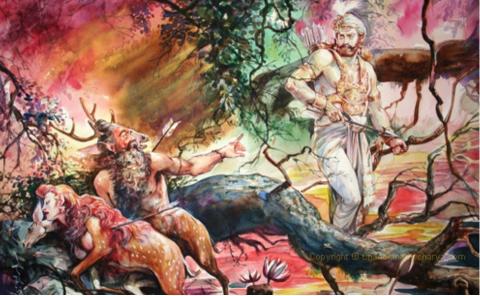
The paintings on epic and purāṇic themes by Sri Chandranath Acharya, an artiste par excellence, represent an optimal blend of the classical Indian flavour with the techniques of the West. He has not only mastered the traditional Indian techniques but also brings in perfect anatomy and three-dimensional charm, typical to the Greco-roman tradition and the Italian Renaissance. He has taken forward the tradition of master artistes such as Raja Ravi...
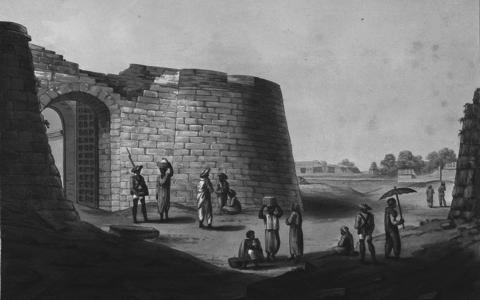
Generosity
There is yet another instance. Vidvān Brahmaśrī Chappalli Viśveśvara-śāstrī of Bangalore was a Sanskrit Scholar at Central College. He was an outstanding scholar of grammar and literary aesthetics. He was a person whose conduct and faith in traditions were worth being emulated by everyone. One day, he went to Dewan V P Madhava Rao to make a request. Rao received him with a lot of regard and asked him what the purpose of his visit was...
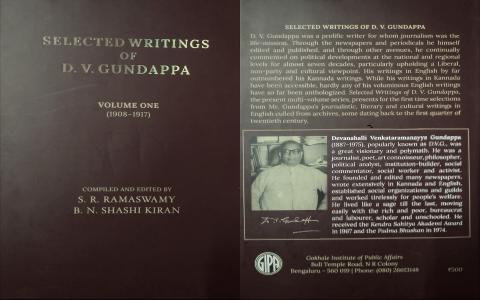
DVG’s exposition of the philosophical footing of citizenship allures us by its timeless fragrance. Hearing him speak on this subject is like lending our ears to Bhagavan Chanakya, Svami Vidyaranya, or Svami Vivekananda:
According to the religion of the Vedanta, the highest felicity of man on earth is to attain to a full and steadfast vision of the spirit of the universe (Brahman). He should wear out the narrow blinkers of his ordinary...
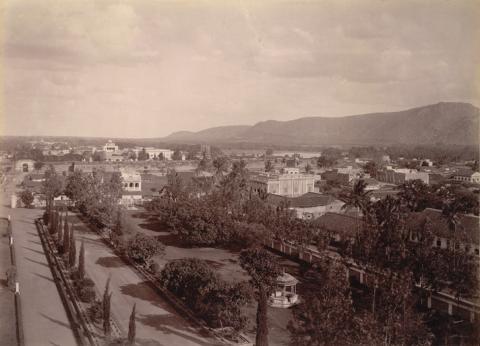
In Travancore
In this manner, V P Madhava Rao became the Dewan of Travancore long before Krishnamurti became the Dewan of Mysore.* There is no doubt that V P Madhava Rao had become popular in Travancore. In my consideration, three of his attributes are extremely necessary for an administrator –
An attractive appearance and oratory (i.e., personality)
Efficiency at work
Excitement in the face of novel ventures
Madhava Rao had an impressive...

Story 5
12. For the fifth time, king Trivikramasena took the corpse upon his shoulder and started to walk. The vetāla began to narrate another story:-
Long ago, Ujjainī was ruled by a king called Puṇyasena. He had a minister named Harisvāmī who had a son Devasvāmī and a daughter Somaprabhā. When Somaprabhā came of age, she told her parents and elder brother that she would only marry someone who was either valorous or wise or a man of science....
